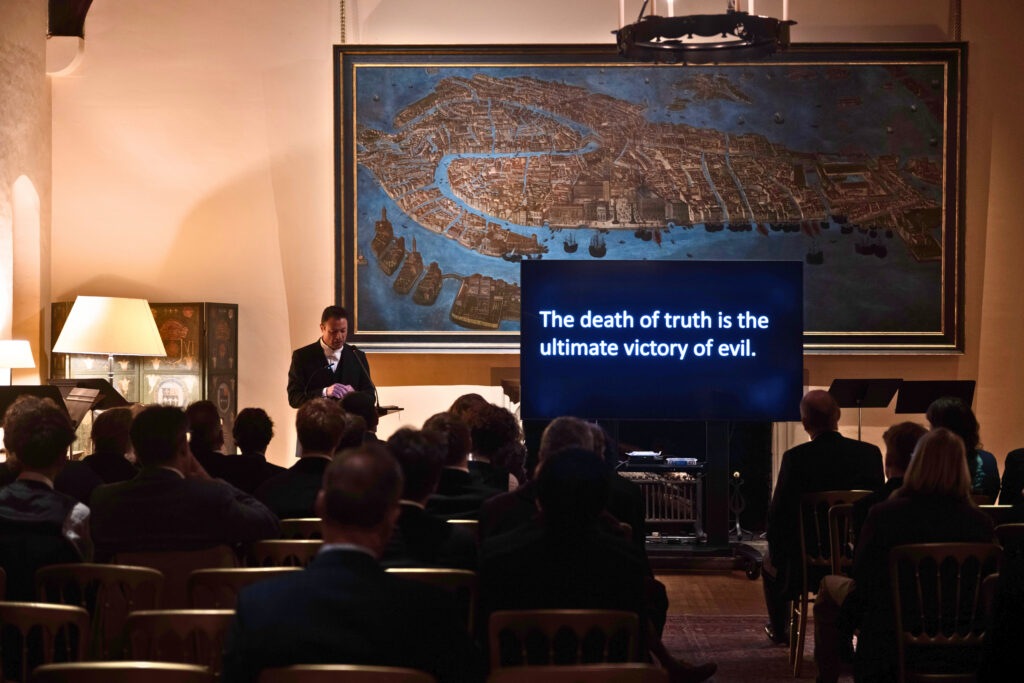Last week at Eton, we strove to challenge the stereotyping, belittling and lack of awareness of people with disabilities. Through society events and a ‘boys and beaks symposium’, the Eton community enjoyed a variety of perspectives on disability awareness and considered how these can help our society become more accepting and kind.
The ‘boys and beaks symposium’ hosted by Director of Inclusion Education Hailz Osborne demonstrated the personal, historical, literary, and cultural significance of people with all abilities
We heard from Father Daniel Bond, who told us how his father’s debilitating spinal disease had inspired him to help run events and classes for people of all abilities at the Phab Club. Phab clubs are a national programme dedicated to supporting children, young people and adults with disabilities. He explained he has discovered the power of resilience and patience in solving human frustrations. Father Bond concluded with an incredibly moving poem written by a young man with Quad Cerebral Palsy. It explored the derogatory way that society can respond to people with disabilities, which sometimes harms them more than their physical condition.
Sam Russell in Year 13, told us about his experiences with amputee war veterans cycling from John o’Groats to Land’s End. He explained that these inspirational soldiers “sacrificed limb for Queen and country” and see their disability as their greatest strength. Having survived the horror of war, they serve as a proud reminder.
It is important to note, however, that disabilities are not always visible. Kristen Hassler, Head of Learning Support, recounted her experience of discovering her dyslexia and ADHD. As a child, she had a strong understanding of her academic subjects but found spelling and reading particularly challenging. She went on to dedicate her career to challenging the perception that people with such learning support needs are intellectually inferior.
From a literary perspective, English beak David Gibbons provided a reading of Shakespeare’s Macbeth. He described the play not simply as the tale of power-corrupted minds, but Macbeth having to come to terms with his impotence. We are made aware in the play that Macbeth is given a ‘barren sceptre’ and so cannot have children himself, so it could be read that Macbeth’s subsequent demonstrations of physical bravado are a way of counteracting his own disability.
Finally, English beak Dr Anna Camilleri used John Milton’s Sonnet 19 (often referred to as On His Blindness) to demonstrate the importance of the senses, or lack thereof. The connection between sight and imagination has “led to the elevation of the blind artist as a visionary”. Through Joyce and Milton, we may even be willing to believe that “the lack of optical vision magnifies poetic vision”, and can therefore observe that disability is not the degradation of human bodily function but is simply a state of contrasting individuality.
We would like to thank all speakers at this symposium for their intriguing and heartfelt contributions.



